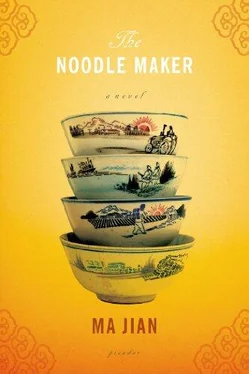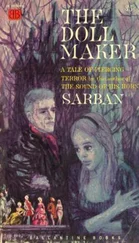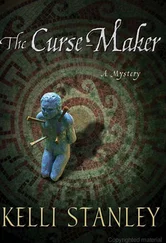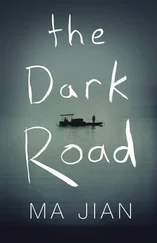Following that successful tryst, he invited her to his office after work on several occasions, hoping to have his way with her again. She accepted every time, and before long became his first official mistress. The joy of possessing a woman, of possessing a virgin, gave him a new lease of life.
‘Before you, I had only ever made love to my wife,’ he told her, as he lay flat across her body.
‘And before I met you, I was a virgin,’ she replied, looking up with a smile.
‘You have turned my life around,’ the editor said, stroking her smooth forehead. ‘I don’t think of myself as middle-aged in the least. I’m only thirty-one years older than you, after all.’
The textile worker boosted the editor’s confidence, and when this confidence spread to his professional life, women began to land on his desk like the manuscripts he received every day. As long as he agreed to publish their works, these women were ready to lay themselves down below his wrinkled body. All he had to do was choose his prey and drop a few subtle hints. He seldom had time to daydream, he was too busy dealing with the growing list of women with whom he was conducting illicit affairs. His secret happiness lent his expression an air of maturity. Nobody knew that when he was chairing the political education meetings at work, or doing the washing-up at home, he was, in his mind, climbing onto a woman, thrusting her legs in the air and subjugating her to his will.
He began to notice the differing ways women behaved during their moments of greatest pleasure. The textile worker paled in comparison with the women who succeeded her. At the peak of her excitement, all she did was let out a soft croak. She never groaned or moaned, or moved her legs about like the more mature women. One woman who stuck most in his mind was a short-story writer from Sichuan. He could never forget the sight of her long dancer’s legs coiled around his elderly body. Unfortunately, once he had published her work, she dropped him like a brick. She proved to be, however, the most memorable woman of all the twenty-one he slept with. In his treasured pink notebook he labelled ‘Compendium of Beauties’, he made a careful record of her birthday, her shoe size and address.
At home, Old Hep became more relaxed, and started to pay more attention to his wife, who had recently brought out her sixth book. (When the professional writer remembers the story of ‘Marx’ and ‘Jenny’ in the novel that made her famous, he is overcome with nausea. Her thinly-veiled autobiographies reek of the fetid regurgitations of her past.) The pockets of Old Hep’s suit were filled with name cards emblazoned with his professional titles of ‘editor-in-chief and ‘Director of the Writers’ Association’. Whenever he met someone for the first time, he would ceremoniously present a card to them with a serious, yet approachable, look on his face. His small stocky build gave people the impression that he was a reliable, hardworking man. After all these years of waiting, he had at last boarded the express train of the Open Door Policy.
After he published the first novel of a local young writer he had discovered (a book the critics later declared to be China’s most avant-garde work of fiction), he gained the respect and admiration of the town’s young literati. They praised his astute eye for talent, and delivered urgent requests to make his acquaintance. To prepare himself for his meetings with them, Old Hep spent many hours trying to learn the phraseology and tone of voice that his wife employed during her literary discussions. Soon he too was able to pepper his speech with terms like ‘the collective subconscious’, ‘twilight mentality’, ‘the absurd’ and ‘pseudo-realism’.
For a while, the female novelist felt left out, and sank into a mild depression. She seemed to have lost the upper hand. When they received visits from women writers who were just like she was twenty years before, she appeared sallow and lacklustre in comparison. Although the new generation of women painted their nails the same shade as hers, they chose to wear not red, but mauve or fluorescent pink lipstick. The fact that she had dared to wear tight jeans a decade before, and had even been prepared to write a self-criticism about it, meant very little to these young women who now preferred to dress in baggy jeans and imported trainers. The most forward-thinking women had already visited Shenzhen and returned with tight, wiry perms. When Old Hep’s wife started sounding off about Hemingway’s The Old Man and the Sea, the young women drifted to the corner of the room to discuss Heidegger and Robbe-Grillet. Her favourite topic of conversation — her memories of the Cultural Revolution and life in the re-education camp — meant nothing to them. They treated her with the detached indifference with which they would treat anyone else from their parents’ generation.
(‘We’re finished,’ she told the professional writer when she visited his room one night, half drunk. ‘This generation knows nothing about suffering, or isolation. Their hearts are numb.’
‘And what good does isolation bring?’ the writer asked.
‘They just don’t take life seriously.’
‘Neither did you, at their age.’
‘Writing demands complete sacrifice. You must pour your soul into the work. Every word has to be paid for in sweat and blood.’
‘But if you cut yourself off from today’s world, how can you hope to write about it?’ the writer said.
‘Writers are the products of their times. A shallow world produces shallow writers. I can’t help missing those years we spent in the re-education camps.’
‘The world has moved on,’ the writer said. ‘You’ve been left behind. Those young women understand today’s society better than you. Perhaps a purer form of literature will emerge from their numb minds. They have no prejudices, no interest in politics. Their problems are purely personal. But you … your time is already over.’)
Old Hep’s passion for the textile worker gradually waned like a poplar tree in autumn, losing more and more leaves with each gust of wind. These winds were caused, of course, by the editor’s increasing number of lovers. The textile worker put up with his neglect, and didn’t lose hope. She believed that her love would finally conquer him, so she stuck to his side and refused to let go. But he only ever agreed to meet her when there was no other prey available. He was determined to live life to the full and make use of all the opportunities his job gave him. He had gained confidence from the textile worker’s adoration, and courage from the advances of the Sichuanese short-story writer. (Although, when the Sichuanese woman had said things like ‘Unhook my bra’ or ‘I love your little bald patch’, he had trembled with fear.) He knew that in order to progress, he needed to continue having these amorous experiences.
The textile worker had been raised in a strict household. Her mother was a government functionary who stuck religiously to the Party rules, her father had died in hospital during the Cultural Revolution. She was an only child, and to support her mother, she had started work as soon as she graduated from high school. If she had gone to university, she would have had to leave town, and her mother would never have agreed to that. So she learned to content herself with what this town could offer her. She knew that if she behaved well in the textile factory, she might be promoted to an office job, and from there perhaps be transferred to a job in the People’s Cultural Centre. She longed to leave the clanking looms behind and find herself a quiet desk job. The editor became her role model. He had told her that as a factory worker he had studied creative writing in his spare time, and on the back of his first film script was promoted to his job as editor-in-chief. When she gazed at him, his short little body seemed Napoleonic, his bloated and lined face reminded her of Beethoven. Having grown up with no paternal love, she looked upon him as a father figure. She only had one aim in life, and that was to remain by his side for ever.
Читать дальше












